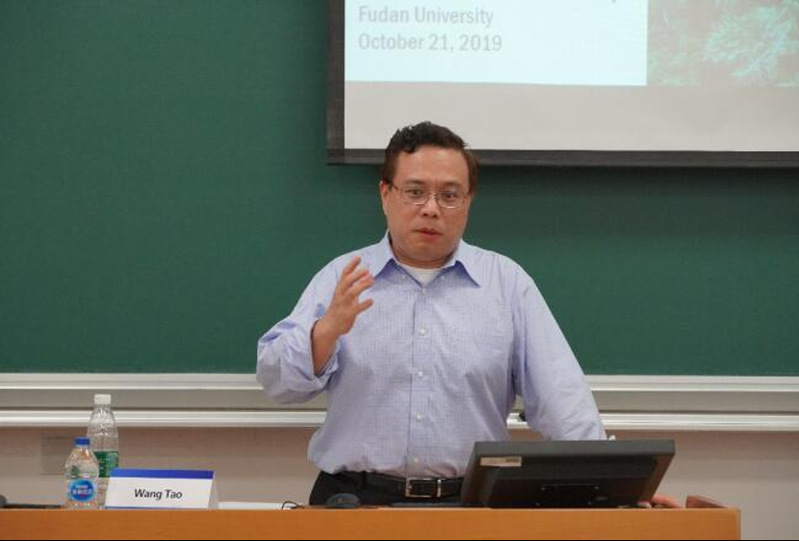
On 21th October 2019, the Institute for Global Public Policy (IGPP) held the 17th event of the Fudan-LSE Lecture Series in Guanghua Towers. Tao Wang, senior investment officer at World Bank (WB), delivered the lecture “Climate Change and Competitiveness”. Professor Yijia Jing, dean of IGPP, chaired the lecture.
At the beginning of the lecture, Professor Jing made a brief introduction to the speaker. Mr. Wang is Senior Climate Change and Environmental Specialist at the WB. He brings his extensive knowledge and experience on climate change policy and strategy, sustainable finance, and environmental sustainability. Mr. Wang led the development and operation of the World Bank Group (WBG)’s 2021-2025 Climate Change Action Plan (CCAP) and acted as Director of Operations at the Green Climate Fund (GCF), the first global climate fund under the United Nations Climate Change Framework Convention.
Mr. Wang started with introduction of the special report “Global Warming of 1.5 ºC” released by the Intergovernmental Panel on Climate Change (IPCC) and three reports “Shockwaves, Groundswell, Unbreakable” released by the WB. He put forward the opinion that climate change will significantly affect competitiveness of nations, organizations and firms. Human activities have a significant impact on climate change, so mitigation and adaptation actions need to be taken as soon as possible to meet the challenges brought by climate change.

Mr. Wang pointed out that low-carbon and resilient growth can promote employment and competitiveness and create $26 trillion economic benefits by 2030. It will also accelerate structural changes in areas such as energy use, land use, water resources and the circular economy. Governments and companies have taken corresponding measures in low-carbon and resilient growth, such as policy incentives, green financial innovation, and low-carbon technology innovation.
The WB has also taken the actions and made great progress in addressing climate change issues. The CCAP announce that WB will invest $200 billion in projects related to climate change goals and actions during 2021-2025.

Finally, Mr. Wang pointed out that all actors, including government, business and academia, need to play a major role in tackling climate change. A prosperous and sustainable future is created by everyone. Mr. Wang answered several questions including engagement of private sector in climate change action, who pays for climate adaptation, impacts of sea level rise on small island countries, and etc.




